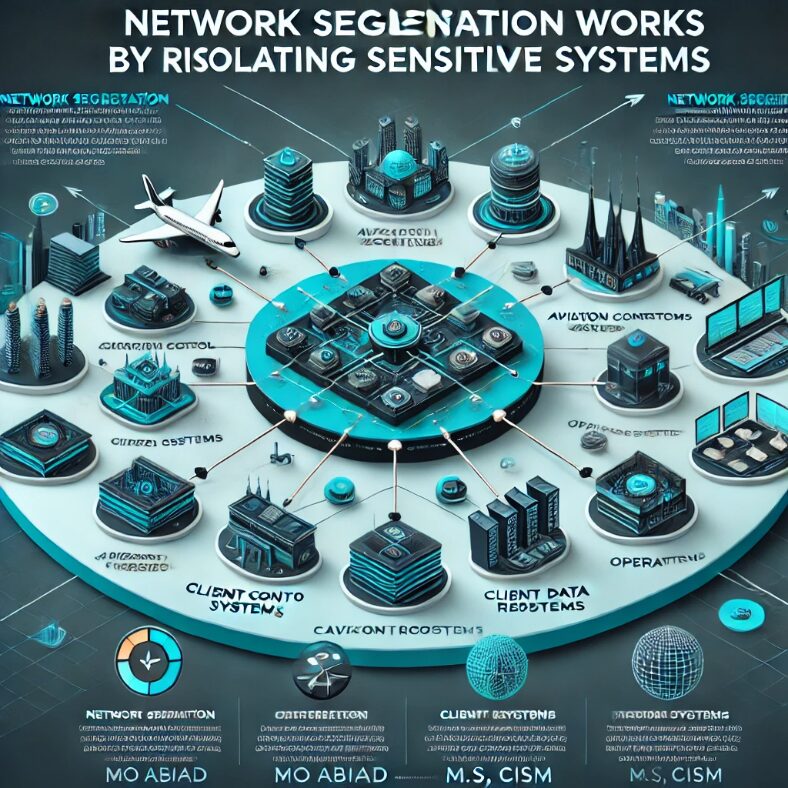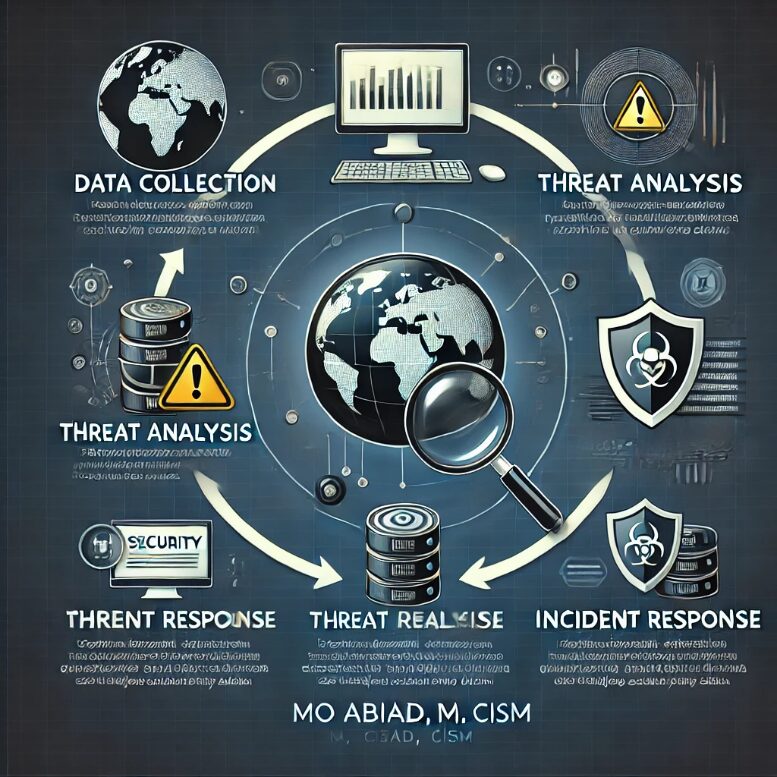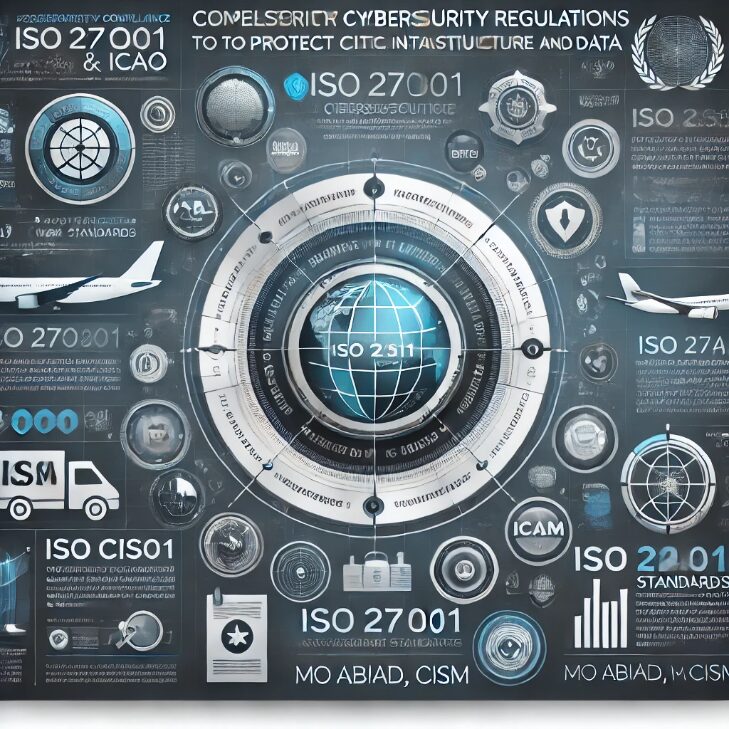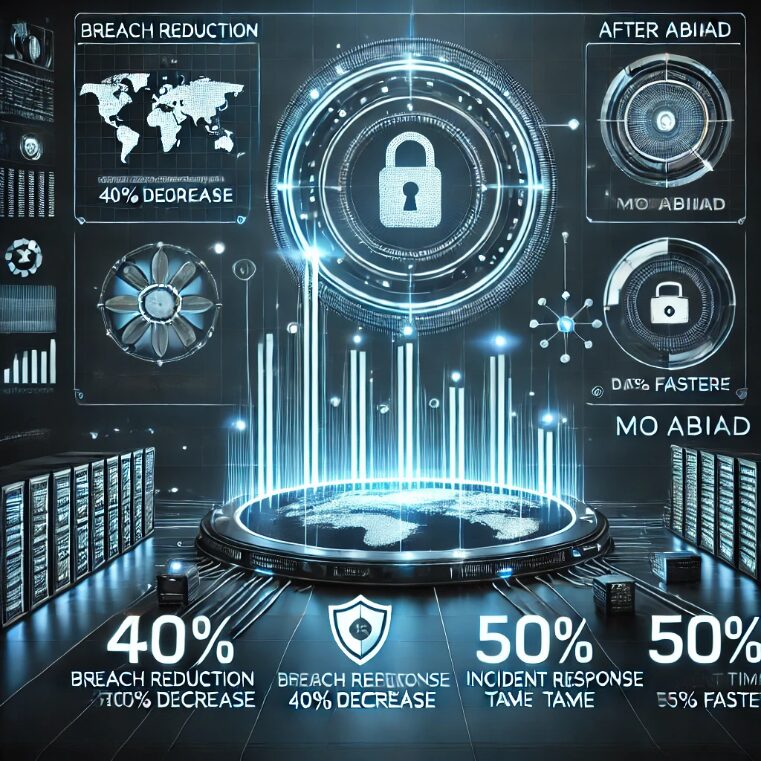Introduction
In an era where cyber threats increasingly target critical infrastructure, the aviation industry faces unparalleled challenges in safeguarding sensitive data and ensuring operational continuity. A pioneer in cybersecurity, Mohamad El Abiad has consistently led transformative initiatives in cybersecurity, securing not only the skies but also shaping industry standards worldwide. With over 22 years of experience, he has played a pivotal role in securing government aviation operations, including at RoyalJet, the UAE Air Force Air Defence IMOC Program, and Presidential Flight—key entities securing national aviation infrastructure. Beyond aviation, his innovative cybersecurity frameworks have influenced industry-wide protocols, ensuring resilience across multiple sectors. This article highlights his transformative contributions and their far-reaching impact.
The Cybersecurity Challenge in Aviation:
The aviation industry is a prime target for cyberattacks due to its reliance on interconnected systems and the sensitive nature of its data. From flight operations to passenger information, every facet of aviation is susceptible to breaches that can disrupt operations, compromise safety, and damage reputations. Recognizing these challenges early in his career, Mohamad El Abiad has spearheaded groundbreaking solutions to fortify cybersecurity defenses and protect critical infrastructure. His leadership has transformed aviation cybersecurity, setting a global benchmark for resilience and compliance.
Pioneering Cybersecurity Innovations:
Building on his extensive experience in securing government aviation operations, El Abiad has developed and implemented advanced cybersecurity strategies that have strengthened the resilience of critical aviation infrastructure. His work with RoyalJet, the UAE Air Force Air Defence IMOC Program, and Presidential Flight has focused on deploying cutting-edge security frameworks that mitigate cyber threats and enhance compliance with international aviation cybersecurity standards. His key contributions include:
Network Segmentation
By designing and implementing a robust network segmentation strategy, El Abiad isolated critical aviation control systems from general IT infrastructure. This approach reduced breach risks by 40%, ensuring operational resilience against cyber threats.
The Figure 1 shows how network segmentation was implemented, highlighting how sensitive aviation control systems are isolated from general IT infrastructure.
360-Degree Threat Detection
Leveraging real-time monitoring tools and AI-driven analytics, El Abiad established a 360-degree threat detection system that continuously scans and analyzes all potential cyber threats across the organization, minimizing vulnerabilities before they escalate. This proactive approach reduced incident response time by 50%, enabling rapid identification and mitigation of potential threats.
The Figure 2 illustrates the workflow of the 360-degree threat detection system, showcasing the steps involved in monitoring and responding to threats.
Zero Trust Architecture (ZTA)
Zero Trust Architecture (ZTA) is a security model that assumes no trusted internal network, requiring strict identity verification for all users, even those within the organization. Deploying a Zero Trust model ensured that only authorized users could access sensitive aviation data, significantly reducing insider threat risks and strengthening overall system integrity. This model was particularly effective in aviation, where the need to control access to sensitive data—such as flight plans and passenger information is critical.
Global Compliance and Industry Standards
El Abiad’s initiatives have not only enhanced security but also ensured compliance with international regulations. His work aligns with:
- ISO 27001: Achieving certification for robust information security management.
- ICAO, GCAA, and NESA: Meeting stringent aviation and cybersecurity regulations to protect critical infrastructure and data.
These achievements positioned RoyalJet and the UAE Air Force Air Defence IMOC program as leaders in aviation cybersecurity, setting a benchmark for the global industry.
The Figure 3 provides an overview of the key compliance standards that El Abiad’s cybersecurity strategies helped achieve, such as ISO 27001 and ICAO certifications.
Measurable Impact and Recognition
El Abiad’s cybersecurity initiatives extended beyond corporate environments, playing a crucial role in protecting VVIP passengers and securing critical aviation infrastructure across the UAE. His expertise in safeguarding government aviation operations has directly contributed to the development of national cybersecurity policies and compliance strategies aligned with national security objectives. Under his leadership, advanced threat detection frameworks and Zero Trust architectures have been implemented to mitigate cyber risks across high-profile government aviation entities. These initiatives have strengthened regulatory compliance and positioned the UAE as a leader in aviation cybersecurity resilience.
The impact of El Abiad’s work is both measurable and far-reaching. His cybersecurity measures have
- Reduced breaches by 40% and incident response time by 50%.
- Enhanced compliance with international standards, earning ISO 27001 certification.
- Strengthened national security by supporting the UAE Air Force Air Defence IMOC program.
For instance, after implementing the 360-degree threat detection system, response times for potential security incidents were reduced by 50%, minimizing potential downtime and maintaining mission-critical operations.
El Abiad’s contributions have been recognized at the highest levels, including
- UAE Golden Visa: Awarded for extraordinary contributions in cybersecurity.
- Award of Excellence – RoyalJet – For outstanding achievements in aviation cybersecurity.
- Appreciation Letter – Presidential Flight – Recognizing exceptional performance in IT infrastructure security.
Broader Impact Beyond Aviation
While El Abiad’s cybersecurity expertise was initially honed in aviation, his methodologies have been successfully adapted to other critical sectors, including financial services, healthcare, and national infrastructure. His ability to scale security frameworks beyond aviation underscores the universality and adaptability of his innovations in cyber defense. For example, El Abiad’s cybersecurity framework was successfully deployed to enhance data protection in financial services, ensuring compliance with GDPR in European markets and safeguarding sensitive financial data against cyber threats. By integrating AI-driven threat intelligence, Zero Trust architectures, and real-time monitoring into cybersecurity strategies across industries, El Abiad is setting new standards in digital resilience and regulatory compliance.
Conclusion:
Mohamad El Abiad’s visionary leadership has redefined cybersecurity in aviation and beyond. His pioneering solutions in government aviation security, critical infrastructure protection, and cross-industry cybersecurity frameworks have fortified organizations against evolving digital threats. By aligning cybersecurity innovations with global security standards and national policy frameworks, he has set new industry benchmarks. As the threat landscape continues to evolve, El Abiad remains at the forefront of shaping the future of cybersecurity, ensuring organizations worldwide remain resilient in an increasingly volatile digital world.
To learn more about Mohamad El Abiad’s work or explore collaboration opportunities, connect with him on LinkedIn and see how his expertise has enhanced cybersecurity across multiple industries.































